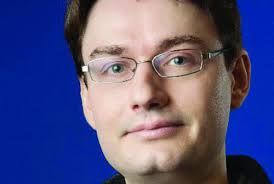A big thank-you to Publicis Sapient for welcoming us to their inspiring office. Presentation slides will be available here. The streaming of the event can also be found here:
Raphaëlle Abitbol How Publicis Sapient builds Machine Learning products to create value for its clients - Raphaëlle Abitbol, Head of Data will introduce the Publicis Sapient Data Science Team
Publicis Sapient is a digital transformation partner helping companies and established organizations get to their future, digitally-enabled state, both in the way they work and the way they serve their customers. Within Publicis Sapient, the Data Science Team builds machine learning products in order to support clients in their transformation.
Margot Fournier, Publicis Sapient. Classification of first time visitors
A significant share of visitors on a site do not return, making it crucial to identify levers that can decrease bouncing rate. For a client in the retail sector, we developed several models that are able to predict both the gender and the segment in which unlogged and unknown visitors fit in. This allows to personalize the experience from the first visit and prevent users from bouncing.
Maxence Brochard, Publicis Sapient. Media campaign optimization
Internet users leave multiple traces of micro-conversions (searches, clicks, whishlist...) during their visit on an ecommerce site: these micro-conversions can be weak signals of an act of purchase in the near future. To analyze those signals, we built a solution to detect visitors that are likely to convert and target them in while optimizing media campaigns budgets.
The fields of neuroscience and artificial intelligence (AI) have a long and intertwined history. In more recent times, however, communication and collaboration between the two fields has become less commonplace.In https://bit.ly/2WLsMaQ, the authors argue that better understanding biological brains could play a vital role in building intelligent machines. They survey historical interactions between the AI and neuroscience fields and emphasize current advances in AI that have been inspired by the study of neural computation in humans and other animals. Finally they conclude by highlighting shared themes that may be key for advancing future research in both fields.
Guillaume Hochard, Quantmetry, Statistical and machine learning methods combination for improved energy consumption forecasting performance.
The recent M4 forecasting competition (https://www.mcompetitions.unic.ac.cy) has demonstrated that the use of one forecasting method alone is not the most efficient approach in terms of forecasting accuracy. In this talk, I will focus on an energy consumption forecasting use case integrating exogenous data such as weather conditions and open data. In particular, I will present a forecasting time series challenge and the best practices observed on the best submissions and showcase an interesting approach based on a combination of classical statistical forecasting methods and machine learning algorithms, such as gradient boosting, for increased performance. Generalizing the use of these methods can be a major help to address the challenge of electricity demand and production adjustment.
Follow @NuitBlog or join the CompressiveSensing Reddit, the Facebook page, the Compressive Sensing group on LinkedIn or the Advanced Matrix Factorization group on LinkedIn
Other links:
Paris Machine Learning: Meetup.com||@Archives||LinkedIn||Facebook|| @ParisMLGroup< br/> About LightOn: Newsletter ||@LightOnIO|| on LinkedIn || on CrunchBase || our Blog
About myself: LightOn || Google Scholar || LinkedIn ||@IgorCarron ||Homepage||ArXiv

